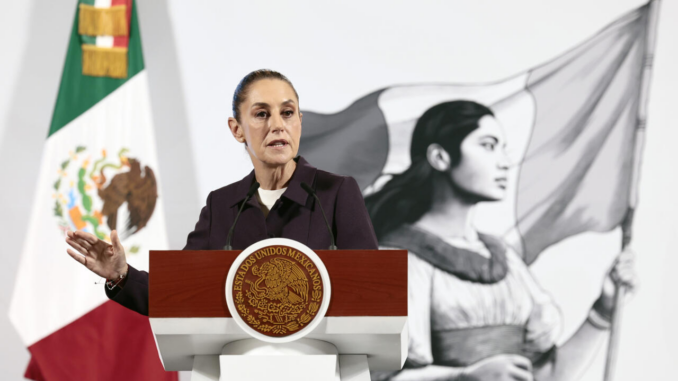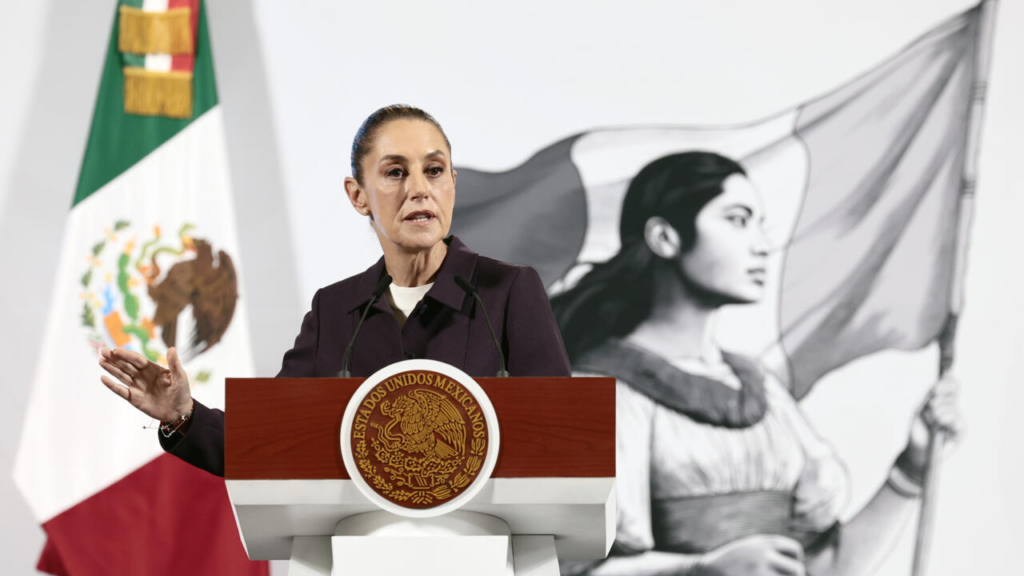

Mexican President Sheinbaum Says a Response to US Tariffs Will Be Announced on April 3rd
In a move that has garnered significant attention from both sides of the border, Mexican President Claudia Sheinbaum has confirmed that her government will announce its response to the United States’ recent tariff decisions on April 3rd. This announcement comes after a period of growing tensions between the two neighboring countries, as trade relations continue to evolve under the administration of US President Joe Biden.
The US Tariffs and Their Impact
The US government, in an attempt to address issues related to trade imbalances and concerns over certain products entering the American market, imposed tariffs on various goods coming from Mexico. These tariffs were primarily aimed at goods such as steel, aluminum, and certain agricultural products, citing concerns over unfair trade practices and competition from cheaper imports.
For Mexico, the tariffs have put a strain on key industries, including manufacturing and agriculture, which are vital to the country’s economy. The tariffs have sparked fears of reduced exports to the United States, Mexico’s largest trading partner, and have raised concerns about job losses and economic downturns in certain sectors.
President Sheinbaum’s Response
President Claudia Sheinbaum, who has been vocal about the importance of maintaining strong economic ties with the United States, made her remarks in a press conference this week, where she stated that Mexico would respond thoughtfully and strategically to the US tariffs. She emphasized that the response would be aimed at protecting Mexico’s economic interests while also seeking to preserve the cordial relationship between the two countries.
“We are aware of the impact these tariffs have had on various sectors of our economy,” Sheinbaum said. “But we also recognize the importance of dialogue and diplomacy in resolving these kinds of issues. We will announce our response on April 3rd, and it will be based on a detailed assessment of the situation and what is best for Mexico’s long-term economic growth.”
The president’s comments signal a determination to protect Mexico’s economy from the adverse effects of the tariffs while also showing a willingness to engage in diplomatic discussions with the United States to find common ground.
What to Expect on April 3rd
While specific details about Mexico’s response have not yet been disclosed, there are indications that the country may seek to impose retaliatory tariffs on US products or introduce measures designed to counterbalance the economic effects of the US tariffs. Experts speculate that Mexico may focus on industries such as agriculture and automotive manufacturing, where it has a strong competitive edge in global markets.
Additionally, Sheinbaum’s administration has signaled a desire to continue discussions with US officials to resolve trade disputes through negotiations rather than escalating the situation with further tariffs. Some analysts suggest that Mexico could use its leverage to push for a more balanced trade agreement that benefits both countries, especially in the context of growing international competition.
The Importance of US-Mexico Relations
The relationship between the United States and Mexico is critical not only for the economies of both countries but also for the broader region. Both countries share a robust trade relationship, with Mexico being the second-largest trading partner of the United States. The trade of goods and services between the two nations supports millions of jobs and contributes significantly to both economies.
In recent years, the economic ties between the US and Mexico have been further strengthened by the United States-Mexico-Canada Agreement (USMCA), which replaced the North American Free Trade Agreement (NAFTA). This agreement sought to modernize trade relations and address new challenges such as digital commerce and labor rights.
However, the imposition of tariffs has raised questions about the future direction of these relations, as tensions over trade issues, border security, and immigration continue to simmer. For President Sheinbaum, finding a way to balance Mexico’s economic interests with the need for constructive diplomacy will be crucial as she seeks to navigate the delicate political and economic landscape.
Potential Repercussions
The repercussions of Mexico’s response to the tariffs could be far-reaching. On one hand, retaliatory tariffs could further strain economic relations, potentially leading to a decline in bilateral trade or economic instability in both countries. On the other hand, a diplomatic approach that includes dialogue and compromise could serve as an opportunity to reset the trade relationship and reduce tensions in the long term.
Experts suggest that any measures taken by Mexico will need to be carefully calibrated to ensure they don’t escalate the situation into a full-blown trade war, which would likely have adverse effects on both economies. At the same time, the response will likely set the tone for future interactions between the two countries and how they address trade imbalances and other issues moving forward.
Conclusion
As the deadline for Mexico’s response to the US tariffs approaches, all eyes are on President Claudia Sheinbaum and her administration to see how they will handle the delicate balance between protecting Mexico’s economic interests and maintaining a productive relationship with its northern neighbor. The announcement on April 3rd will likely be a pivotal moment in the ongoing trade saga between the two countries and could set the stage for the future of US-Mexico relations.
As Sheinbaum prepares to reveal her government’s response, the world will be watching closely to see whether diplomacy, negotiation, or retaliation will shape the next chapter in the complex economic ties between the United States and Mexico.